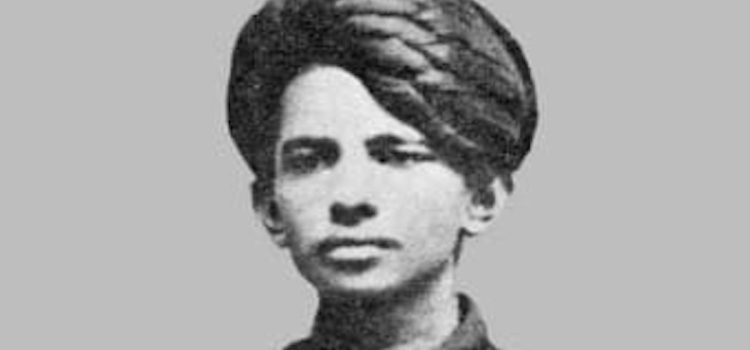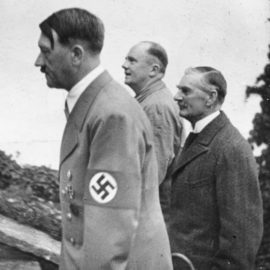

This article is an excerpt from the Shortform book guide to "The Story of My Experiments with Truth" by Mahatma Gandhi. Shortform has the world's best summaries and analyses of books you should be reading.
Like this article? Sign up for a free trial here.
What shaped Mahatma Gandhi’s early years? How did his childhood experiences influence his future leadership?
The early life of Mahatma Gandhi was filled with formative events. From his religious upbringing to his marriage at 13, Gandhi’s youth laid the foundation for his later activism. His parents’ faith, early encounters with honesty and duty, and personal struggles all played a role in shaping his character.
Read on for the story of a young Mohandas and discover how a shy boy from Porbandar grew into one of history’s most influential leaders.
Mahatma Gandhi’s Early Life
We’ll recount the early life of Mahatma Gandhi in India as shared in his autobiography The Story of My Experiments With Truth. We’ll further explore some of the formative events of his childhood and teenage years, including his marriage at age 13 and his time spent nursing his sick father.
Growing Up in Porbandar
Mohandas Gandhi was born in 1869 in Porbandar, India. (Shortform note: Although the world knows him as Mahatma Gandhi, his given name was Mohandas. He received the honorific Mahatma, a Sanskrit word meaning great soul, in recognition of his activism for his fellow Indians. To avoid confusing him with his parents, we’ll refer to him as Mohandas when describing his early life.)
He explains that his parents’ religious faith and values profoundly influenced him. For example, his mother, Putlibai Gandhi, impressed her son with her religious commitment to vegetarianism and fasting. When it was time for Mohandas to leave the family home for university, she wouldn’t let him go without vowing not to eat meat, drink alcohol, or have sexual relations—practices which Mohandas continued throughout his life.
(Shortform note: Mohandas’s parents practiced Vaishnavism, a type of Hinduism (the major religion in India) influenced by Jainism (a minority religion in India), especially Jainism’s focus on self-discipline and nonviolence. For example, Mohandas remembers his father getting out of bed to clean himself several times a day, as his religious beliefs commanded, despite being bedridden with pain at the time. Putlibai’s strict vegetarianism and fasting were a result of self-discipline and the desire not to commit violence against other living beings. Another way Jainism might have influenced Mohandas is that it emphasizes honesty, and Jains often take a vow promising always to be honest, unless it puts another living being in harm’s way.)
Although Mohandas claims that he was unremarkable as a child, the makings of his future leadership were already there. Although he was shy, struggled to make friends, and didn’t achieve great results at school, he developed a strong sense of duty early on, as well as a commitment to honesty—a precursor of his search for Truth. For example, he read a book about devoutness to one’s parents that deeply affected him and made him wish to be a deeply devoted son, just like the main character of the story. He also saw a play that instilled in him the virtue of truthfulness. He remembers imagining himself as the main character, upholding truth at all costs—both the truth of a situation and the Truth within oneself.
(Shortform note: Rather than being unremarkable, Mohandas may have simply been introverted. In Quiet, Susan Cain argues that we built our society around the “extrovert ideal.” We expect everyone to be outgoing and action-oriented, and we see quiet, thoughtful people as deviating from that norm. Schools and workplaces also tend to favor extroversion—such as encouraging group work and loud brainstorming sessions—so students or workers who don’t fit that ideal are more likely to struggle to keep up or get ahead.)
Getting Married at 13
Mohandas was married at 13 to a girl called Kasturbai. Reflecting on this later as an adult, he realized that the adults around him failed him when they made him get married at such a young age, and he was glad that the children in his family didn’t have the same experience.
Kasturbai was a quiet and self-sufficient girl who hadn’t received any education. Mohandas says he wanted to teach her, but he was distracted by lust for her during the first years of their marriage. When that distraction wore off, he got involved in public service, which kept him from having time to teach Kasturbai anything beyond basic literacy.
(Shortform note: Kasturbai’s story of child marriage and lack of access to education isn’t rare, even today. According to a 2008 report by the International Centre for Research on Women, more than half of young Indian women over the age of 20 with no education were married before they were 18. India instituted the Prohibition of Child Marriage Act in 2006, forbidding the marriage of girls under 18; but in 2013, Plan International reported that parents still find ways to defy the law and marry their daughters off as early as 12 years old.)
Teenage Years
As a teenager, Gandhi further developed key values that would guide him as an adult: honesty, nonviolence, duty, and self-restraint. Two events show these values taking shape.
Honesty and Nonviolence
Mohandas and some of his friends experimented with smoking and eating foods that their parents forbade. In the process, they racked up debt at a local store and Mohandas stole gold from his brother to repay the debt. Later, he felt guilty and wrote a letter to his father confessing. Instead of punishing him, his usual response to misbehavior, his father ripped up the confession and hugged him. Mohandas believed and admired that his father responded with love instead of violence because he knew that Mohandas’s confession came from true regret.
Duty and Self-Restraint
When Mohandas was 16, his father became ill. He was happy to be his father’s nurse, but Mohandas often felt impatient to return to his wife’s room to have sex, which caused him shame. The night his father died, Mohandas was with his wife. Mohandas says he deeply regretted that lust kept him from being with his father in his final moments.
| Mohandas’s Guilt and Shame Mohandas’s teenage experiences show opposing examples of dealing with mistakes: through guilt and through shame. In Daring Greatly, Brené Brown argues that the difference between shame and guilt is “I’m bad” (shame) versus “I did something bad” (guilt). Shame impedes action and growth, but guilt facilitates self-awareness and initiative for growth. The fact that Mohandas confessed and apologized after stealing from his brother demonstrates self-awareness and a desire to grow. Therefore, Brown would likely call this experience one in which Mohandas felt guilty (rather than ashamed). The positive response he received from his father encouraged him to view the experience as a moment of personal growth and cemented his belief in honesty and nonviolence. However, having sex with his wife the night his father died caused Mohandas to feel shame—he uses this exact word when describing this incident in his autobiography. This experience of shame may explain his self-punishing behavior such as intense self-restraint and ultimately celibacy. |

———End of Preview———
Like what you just read? Read the rest of the world's best book summary and analysis of Mahatma Gandhi's "The Story of My Experiments with Truth" at Shortform.
Here's what you'll find in our full The Story of My Experiments with Truth summary:
- Gandhi’s life story from childhood until adulthood
- How Gandhi became a world-famous activist
- A look at Gandhi’s commitment to a nonviolent, austere lifestyle






